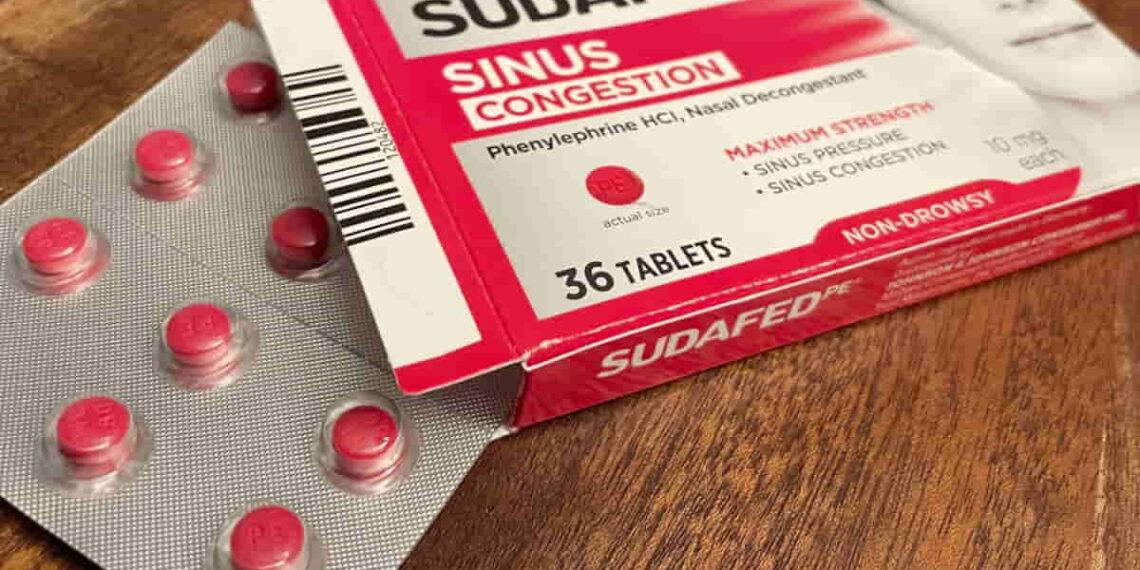FDA Declares Popular Decongestant Ineffective – What Now?
? Big Changes Coming to Cold & Cough Medicines
? FDA Moves to Ban Phenylephrine in Pills & Syrups
? Consumers Must Turn to More Effective Alternatives
Popular Cold Medicine Ingredient Doesn’t Work, FDA Says
Big changes are coming to your local pharmacy’s cold and cough aisle. The Food and Drug Administration (FDA) has announced plans to phase out phenylephrine, a leading decongestant found in hundreds of over-the-counter (OTC) medications, including Sudafed PE, DayQuil, and NyQuil.
The reason? It doesn’t actually relieve nasal congestion.
Despite being a common ingredient in cold and allergy medications, experts have questioned phenylephrine’s effectiveness for years. Now, the FDA has formally proposed revoking its use in oral pills and liquid solutions, meaning drugmakers will soon have to remove or reformulate their products.
Why Is the FDA Taking Action Now?
The decision comes after federal health advisers voted unanimously last year that phenylephrine does not work when taken orally.
Key Findings from FDA Experts:
Large, recent studies found phenylephrine was no better than a placebo at clearing nasal congestion.
Older studies from the 1960s and 1970s that initially supported the drug’s approval were found to be flawed and unreliable.
The $1.8 billion market for oral phenylephrine products could soon disappear.
Important Note: This decision only applies to oral phenylephrine (pills & syrups). Phenylephrine-based nasal sprays will remain available, as they are still considered effective.
What Are the Best Alternatives for Nasal Congestion?
With oral phenylephrine on the way out, what should you use instead?
Pseudoephedrine (Behind-the-Counter)
If you still prefer pills or syrups, you’ll need to ask for medications containing pseudoephedrine (the original decongestant in Sudafed).
Available behind the pharmacy counter (no prescription needed)
Found in Sudafed, Claritin-D, Allegra-D
More effective than phenylephrine
You must show a photo ID to purchase, due to laws preventing its misuse in methamphetamine production.
Nasal Sprays for Fast Relief
- Saline sprays & rinses (e.g., Neti pots) – Quickly clear mucus buildup.
- Nasal steroids (Flonase, Nasacort, Rhinocort) – Best for long-term congestion relief, but must be used daily for full effect.
- Antihistamine sprays (Astepro) – Act faster than steroids for short-term relief.
Why Doesn’t Oral Phenylephrine Work?
According to University of Florida researchers, phenylephrine is quickly broken down in the stomach, making it ineffective before it even reaches the bloodstream.
Dr. Leslie Hendeles, a leading researcher on phenylephrine, explains:
“This is a good drug, but not when it’s swallowed. It gets inactivated in the gut, so it can’t get to the nose.”
Even at doses 400% higher than currently recommended, phenylephrine still failed to relieve congestion. Increasing the dose even more could lead to dangerously high blood pressure, which is why the FDA ruled out stronger doses as an option.
What Happens Next?
The process to remove oral phenylephrine from store shelves won’t happen overnight.
Next Steps in the FDA Process:
6-month public comment period – Consumers & companies can submit feedback.
FDA review & final decision – Could take over a year for drugmakers to reformulate or remove products.
Possible delays – Drug companies may request additional hearings, slowing the process further.
Drugmakers Pushing Back
The Consumer Healthcare Products Association, which represents drug manufacturers, wants to keep phenylephrine available, arguing that consumers should have the right to choose their medications.
However, researchers like Dr. Randy Hatton (who co-led the FDA petition) disagree:
“Choosing from something that doesn’t work isn’t really a choice.”
What Should Consumers Do Now?
Avoid OTC pills labeled ‘PE’ – They won’t help your congestion.
Ask for pseudoephedrine at the pharmacy counter – It’s still available and works better.
Use nasal sprays & saline rinses – These provide fast and effective relief.
Consult your doctor or pharmacist – They can recommend the best alternative for your symptoms.
With the FDA cracking down on ineffective medications, consumers will soon have better options to actually relieve congestion. Stay informed and choose medications that truly work!
This article was rewritten by JournosNews.com based on verified reporting from trusted sources. The content has been independently reviewed, fact-checked, and edited for accuracy, neutrality, tone, and global readability in accordance with Google News and AdSense standards.
All opinions, quotes, or statements from contributors, experts, or sourced organizations do not necessarily reflect the views of JournosNews.com. JournosNews.com maintains full editorial independence from any external funders, sponsors, or organizations.
Stay informed with JournosNews.com — your trusted source for verified global reporting and in-depth analysis. Follow us on Google News, BlueSky, and X for real-time updates.














